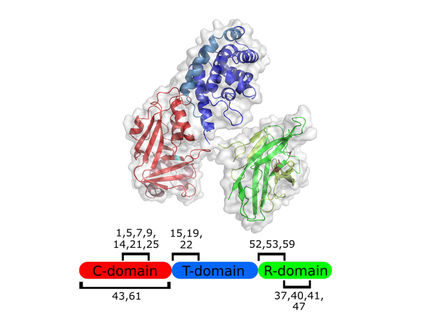Novartis receives FDA approval of Menveo, a vaccine to prevent meningococcal disease
Advertisement
Novartis announced that Menveo® (Meningococcal (Groups A, C, Y and W-135) Oligosaccharide diphtheria CRM197 Conjugate Vaccine), a quadrivalent meningococcal conjugate vaccine was approved by the US food and Drug Administration (FDA) for active immunization to prevent invasive meningococcal disease caused by Neisseria meningitidis serogroups A, C, Y and W-135 in people 11 to 55 years of age.
"The FDA approval of Menveo is an important milestone for adolescent immunization in the United States. According to CDC estimates, approximately 16 million adolescents between the ages of 11 and 18 are at risk and remain unprotected against meningococcal disease," said Andrin Oswald, Division Head of Novartis Vaccines and Diagnostics. "Meningococcal disease is particularly distressing because it can rapidly kill or debilitate previously healthy adolescents. For this reason, we are dedicated to helping eradicate meningococcal disease in the United States and around the world."
FDA approval of Menveo was based on a Phase III head-to-head clinical trial that compared Menveo to the other US-licensed ACWY meningococcal conjugate vaccine among subjects 11 to 55 years of age. The trial, which was broken into two subsets - adolescents, age 11 to 18, and adults, age 19 to 55 - measured for each of the four serogroups both the percentage of subjects who achieved an immune response as measured by seroresponse and proportions achieving human serum bactericidal antibody (hSBA) titers >=1:8. Additionally the study examined antibody level as measured by geometric mean titers (GMT).
"Even with early and appropriate treatment, patients can die from meningococcal disease, often within 24-48 hours of onset of symptoms. Menveo achieved a higher immune response than the other currently available vaccine, which is very reassuring," said Keith S. Reisinger, MD, Medical Director, Primary Physicians Research, Inc., Pittsburgh, Penn. "With the FDA approval of Menveo, now healthcare providers in the United States have another option to help prevent this life-threatening invasive disease."
In study participants aged 11 to 18 years, Menveo met its primary endpoint for all four serogroups using hSBA seroresponse. The percentages of subjects who demonstrated an immune response (i.e., achieved an hSBA titer >=1:8) for each serogroup for Menveo and its comparator (the other currently US-licensed ACWY meningococcal conjugate vaccine) respectively, were: Serogroup A - 75: 67; serogroup C - 84: 84; serogroup Y - 88: 69; and serogroup W-135 - 96: 88[1].
The seroresponse with Menveo for serogroups A, Y and W-135, was statistically higher. However the clinical relevance of higher post-vaccination immune responses is not known.
In the same group, the levels of circulating antibodies (i.e., GMT) in those who received Menveo vs. those who received the comparator, respectively, were: Serogroup A - 29: 18; serogroup C - 59: 47; serogroup Y - 51: 18; and serogroup W-135 - 87: 44.
Other news from the department research and development
Most read news
More news from our other portals
See the theme worlds for related content
Topic world Antibodies
Antibodies are specialized molecules of our immune system that can specifically recognize and neutralize pathogens or foreign substances. Antibody research in biotech and pharma has recognized this natural defense potential and is working intensively to make it therapeutically useful. From monoclonal antibodies used against cancer or autoimmune diseases to antibody-drug conjugates that specifically transport drugs to disease cells - the possibilities are enormous

Topic world Antibodies
Antibodies are specialized molecules of our immune system that can specifically recognize and neutralize pathogens or foreign substances. Antibody research in biotech and pharma has recognized this natural defense potential and is working intensively to make it therapeutically useful. From monoclonal antibodies used against cancer or autoimmune diseases to antibody-drug conjugates that specifically transport drugs to disease cells - the possibilities are enormous

















































